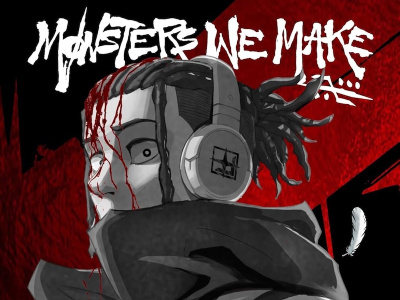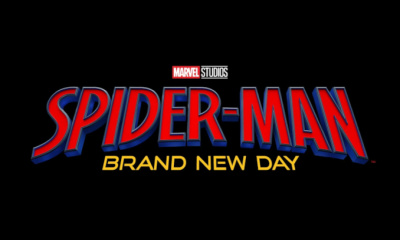
A couple of weeks ago at the San Diego Comic-Con, we sat down with DC President and Publisher Paul Levitz (DC Vice President Sales Bob Wayne sat in) for our annual talk about the state of the comic business and DC's place in it. In Part 3, we talk about the toy business, DC's Crisis editorial event, and ask whether the current spate of comics-based movies is a bubble. In Part 1, we talked about the setting for the meeting (the San Diego Comic-Con), the state of the comics market in 2005, and DC's place in the fastest-growing parts of that market. And in Part 2, we discussed the ongoing restructuring of DC's sales and marketing staff, what those changes mean for DC's relationships with its primary sales channels, and ask whether graphic novels will ever pass periodicals.
Where do you see your toy business going?
Levitz: We've had another year of healthy growth. We've already launched our network projects that have been challenging, but creatively interesting. We hope we connect with the audience. We're announcing a major series of Looney Tunes plastic collectible products based on the original cartoons. We're hoping to broaden our range with this offering. We've had a great response to situations where we've been able to tie the lines to either recent creative work or classic creative work.
It's the first batch of Looney Tunes figures that I can remember that were designed to replicate classic scenes from classic cartoons. It ties into the current availability of the Golden Age of Looney Tunes DVD boxed sets.
That's another area where we're adding more staff. We've brought in a fellow named Jeff Trojan as VP of Business Development for DC Direct. He comes out of the toy business; he's one of the guys who helped develop the Simpsons toys. George Brewer's incredible gift o be creative on all this, Cheryl's continued contribution pulling us together on the license programs, and the innovative deals she's done with some of our Japanese teams will continue to provide fuel to build this business.
I was talking to a retailer. He was very complimentary on the Alex Ross Justice League line, but mentioned that on Crisis Series 1, he was having some paint problems; he talked about color showing through the flesh colors on the females. Are you using multiple manufacturers or is that some other issue?
Levitz: I don't know the specific problems. We've taken a couple of steps to increase our on-the-ground presence in the
I think that's why it was notable.
It's fairly isolated.
Levitz: One of the fundamental differences in that business from publishing is that the physicality of publishing is very mature. We know what we're doing. You may change paper stock or the press, but when the creative process is finished there's an objective answer how to get it done well.
You've done every format a million times.
Levitz: Occasionally we find a new way to make a mistake within those formats.
You should hold yourself to a very high batting average of quality because you've had a chance to learn your lessons. We're not Hasbro with five decades of experience, or Mattel with a couple of lifetimes of experience. We're still relatively new kids on the block. The kinds of collectibles we're making didn't exist when you and I were kids. The challenges of the physical production style will remain for some years to come. We want to find the forms we have not yet done that might please people; the combinations of material, price points, quality of manufacture, different techniques. That means something's going to get screwed up occasionally. Hopefully we'll do it in a fashion where neither our retailers nor our consumers will get hurt in the process.
Talk about the Crisis editorial event. The run-up titles have done really well. How do you see that carrying through the end of the year?
Levitz: We have such fun coming. I'm not sure exactly what Dan has in his head for some of those things.
I think one of the conspicuous differences that Dan has brought to our mix, and again this really goes back to my earlier theme of fresh blood and fresh ways of thinking, is that Dan is a long time comics fan but had not been making comics in his professional life. He'd been doing analogous things in animation. He viewed the challenges a different way than a comic book editor would. He brought to it a certain amount of programmers' philosophy. We've got to keep looking at the line as a whole for the DCU, find ways to keep people interested, make sure that they're surprised every so often, keep their eye focused here, move their eye over there, which is very logical marketing for any field but was not historically the editorial approach to driving the line. A lot of what has informed the Crisis project and informs the plans rolling forward from that is that programmer's point of view that says, 'You're going to come and pick up your comics every week. I want you to find DC interesting every week as you show up. We're going to it this way this time, and then we're going to switch and do it that way next time, and then we're going to look for another approach after that.' We had some very interesting and very challenging discussions on how we could keep raising that ante and keep changing the form and creating the excitement. I think Dan will continue to surprise.
Levitz: Absolutely. There's a paradigm shift in all of this. One of the hardest things to do when you've been in a business seventy years as we have is to continually reexamine your business and be prepared to move away from old models, or move to an old model that worked at one point and stopped working but might be right for the time. The multiple mini-series model that is working so well for us this summer and spring seemed like it was nuts to me when Dan pitched it. People are going to care about OMAC? Didn't we beat that to death the last three times?
Wayne: Then my phone rings. 'Can you come up here? Dan's trying to convince me that we can sell x number of copies of OMAC.' Did he tell you whose numbers he was giving you? No? I'll be right there. (laughter)
Levitz: The approach is, one of the reasons to do this is we haven't done it and nobody else has done it for awhile. There's a way to take that old idea, or a germ from that old idea and do it in a way that works in the marketplace today, and for the reader's taste, and for the type of story we're telling. One of the major changes, certainly a piece of fun I'm having with Dan -- 'cause I'm not in the day to day loop -- he'll come up and start talking about a story he wants to tell. I'll challenge him to find the right way to tell that story. 'Well you know, we've never told one this way before, not in terms of content but in terms of bringing it to market.' So far he's had extraordinary courage in how to pull that off. It's a lot of fun to watch.
Wayne: My office is right near the stairway door. Dan will be up in Paul's office, then he'll come down the stairs and walk into my office, and I'll say, 'How did it go?' He'll say, 'He was right!'
Levitz: The law of averages, it has to happen eventually! We're continuing to build on a set of strategies that we've believed in for a bunch of years. Some of them are now conventional wisdom, when you talk about the graphic novels. We're no longer the leader in the way we were a decade ago when nobody else had their act together. We're still doing the leadership standard role. We haven't captured the manga business as effectively as Tokyopop, which has the early mover passion, or Viz, which has a tremendous strategic advantage and relationship with the Japanese parent companies and access to an extraordinary library of material. We believe in the diversity of the line and effective branding, and finding ways to expand that. You'll see more of that in the future.
The conviction remains that if there's an audience for comics in the English language we should be reaching that audience, publishing quality product for them, developing unique and interesting projects across that line. Vertigo is stronger than it's ever been and has benefited way disproportionately in the graphic novel business. If you broke Vertigo out as a separate publisher, they'd probably be one of the top half dozen. That isn't visible because they're hidden in our numbers. That's become a core piece of the business model for running that imprint, much more quickly than any other publisher. Nobody else is managing the balance between periodicals and book format as effectively as DC. We're going to try and stay ahead of the curve and go for the long run.
Regarding the comic movies, are we in a bubble-type phenomenon? There are so many -- is that going to crash against the shore or is it an ongoing trend?
Levitz: You'll see more comic book movies as part of the mix, maybe not forever, but for a long time. Comic books are great R&D vehicles for films. You'll see more films like Constantine, or Sin City, where if you didn't tell them it was a comic book, they wouldn't necessarily know it was a comic book. The number of superhero movies will wax and wane based on the relative success of the books. I think we'll still see several years of a very large number because there's a bunch of good properties from both us and Marvel in the pipeline that will continue to hit, continue to succeed. You'll get somewhat of a bubble because it's the tendency of the movie business, 'Oh, well, superhero movies work!
Our interview with Paul Levitz is an annual event. For last year's interview, see 'Interview with Paul Levitz Part 1,' 'Interview with Paul Levitz Part 2,' and 'Interview with Paul Levitz Part 3.'







